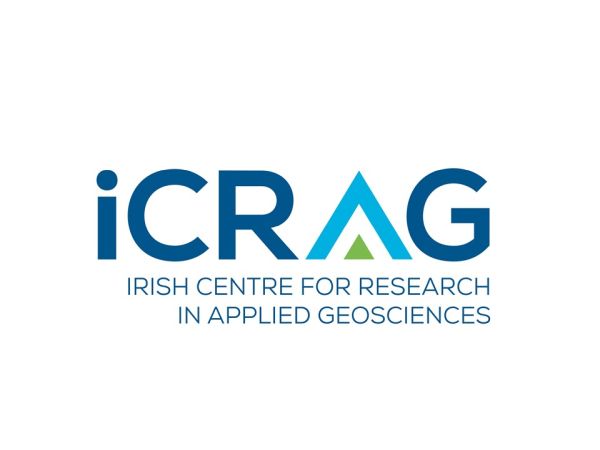Five iCRAG researchers have been awarded GSI funding as part of the GSI short call research programme, spanning the areas of geophysics, meteorology, seabed hydrodynamics, civil engineering, palaeontology and geochemistry.
Prof. Chris Bean, Dublin Institute for Advanced Studies
Mapping weather & climate indices using seismic data (SeisStorm)
Using new continuous seismic data (~18 months) recorded on the seafloor during the SEA-SEIS experiment, this project aims to uncover the seismic signature associated with North Atlantic storm tracks that fluctuate with the North Atlantic Oscillation.
In addition, Prof. Bean has also been awarded funding for amulti-annual prokect "Innovation for De-Risking Enhanced Geothermal Energy Projects" (DEEP) which is co-funded through the Geothermica ERA Net.
Dr Jennifer Keenahan, University College Dublin in collaboration with Dr Mark Coughlan, University College Dublin
Developing seabed scour assessment and prediction tools using computational fluid dynamics modelling (DeMo)
The DeMo project will primarily use CFD modelling, validated by traditional seabed mapping results, to help better understand seabed hydrodynamics and scour development in the Irish Sea.
Dr Ivan Lokmer, University College Dublin
Amplification of seismic rotations due to subsurface heterogeneities
This project aims to (i) quantify amplifications in ground rotations and (ii) evaluate the impact of amplifications on the seismic response of civil engineering structures.
Prof. Patrick Orr, University College Dublin
Assessing the potential of Holocene shellbeds in Galway Bay as palaeoenvironmental and palaeoclimate archives
This project aims to elucidate if some shellbeds represent a biological response to environmental change in the past that is potentially relevant to present-day freshening of the North Atlantic
Dr Paul Slezak, University College Dublin
Hyperspectral Analysis of the Mourne Mountains (HAMM)
This project aims to analyse samples from the MMC using hyperspectral analyses with the Geological Survey Ireland’s hyperspectral scanner and to identify the causes for the hyperspectral signatures using geochemical analyses at the Earth Surface Research Laboratory (ESRL) in TCD and the National Centre for Isotope Geochemistry (NCIG) in UCD.
In total, Geological Survey Ireland has awarded over €1.45 million under its Research Programme in 2020. World-class research projects in geoscience and related areas of environmental science and engineering were supported. Since 2015, the Programme has committed over €11 million in funding to over 150 projects in academia and SMEs. Data, expertise and support from Geological Survey Ireland scientific and technical staff have also been provided under the Programme.
Geological Survey Ireland is the National Earth Science Agency. It is responsible for providing geological advice and information, and for the acquisition of data for this purpose. Geological Survey Ireland produces a range of products including maps, reports and databases and acts as a knowledge center and project partner in all aspects of Irish geology Geological Survey Ireland is a division of the Department of the Environment, Climate and Communications (DECC)




